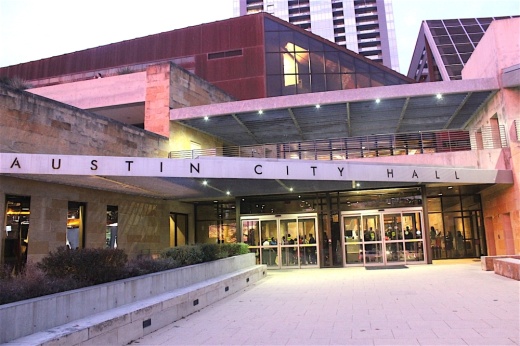Austin's approved fiscal year 2022-23 budget came with several additions from City Council sending millions of dollars to public safety, parks, city planning and public health.
Top highlights from the FY 2022-23 budget process included a boost to the city’s minimum wage—and related raises for higher-earning employees to account for compression—as well as City Council’s decision to raise their own salaries by nearly 40%. Those items were tacked onto a spending plan proposed by City Manager Spencer Cronk he had said was designed to maintain city operations and support its workforce, although council members took advantage of some remaining money to fund a variety of their own priorities.
A late addition of around $20 million in available funding, which city finance staff said was a result of adjustments to tax projections and other city funds, backed up several of those council tweaks as the budget approval wrapped up. Some of council's amendments and budget requests are covered below, and the city said it expects a finalized FY 2022-23 budget document to be available this fall.
- An amendment from District 2 Council Member Vanessa Fuentes dedicated an additional $200,000 to public education and city assistance tied to reproductive health, contraception and accessing relevant services.
- Another Fuentes amendment estimated at less than $12,000 will launch an Enhanced Library Card pilot program at a handful of Austin Public Library branches. The initiative will establish a new library card option that can also serve as a form of identification recognized within the city, including by the police department and water and power utilities. Fuentes said the program is geared toward those who are unable to use “more traditional forms” of government ID, and the concept was backed this summer by the city’s library commission.
- Additionally, Fuentes-proposed funding to support victims of violence that was approved by council earlier this year also ended up in the final city budget. A $1 million allocation will be used to help launch a trauma recovery center, a service and support hub for victims of violence, which Fuentes said would be the first of its kind in Texas.
- Austin Public Health officials had informed council during budget planning that it lacked continuing resources for emergency response to disease outbreaks, including COVID-19 and the recent monkeypox surge. An amendment from Mayor Pro Tem Alison Alter set aside more than $360,000 this year for monkeypox response, plus more than $470,000 on an ongoing basis to fund four epidemiologist positions at APH.
- Alter also secured funding for several improvements to the Austin Police Department's Sex Crimes Unit and sexual assault response, based in part on recommendations forwarded by a national nonprofit that has audited APD's work with such cases over the past decade. Updates include new staff positions, ongoing annual reviews of sex crime cases and new equipment for the police unit.
- District 6 Council Member Mackenzie Kelly's proposal to fund new paramedic training equipment and a whole-blood program for trauma incidents handled by Austin-Travis County EMS was also included. A total of $120,000 for the initiative will be pulled from this year's budget with an additional $200,000 funded on an ongoing basis and nearly $900,000 more pulled from other sources.
- Kelly's proposal to allow APD to run two "modified" police cadet academies—training sessions for those with previous law enforcement experience, rather than fresh recruits—was also supported by council. Her request came as the police department continues to face a staffing shortage, and the measure passed with additional direction that all trainees still experience APD's updated curriculum and training as reviews of the program and the department overall continue.
- APD continues to face a shortage of 911 call takers and dispatchers—positions that had 41% and 28% vacancy rates as of August. A budget request from District 5 Council Member Ann Kitchen directs Cronk to give council a report on vacancies and the hiring outlook in the 911 call center, including recommendations for filling empty slots there.
- An amendment from District 4 Council Member Chito Vela adjusts Austin Energy's budget to fund new environmental testing of groundwater around the Fayette Power Project in La Grange. The coal power plant, a joint venture between AE and the Lower Colorado River Authority, has sparked concerns about negative environmental effects on nearby residents and calls from community members to shut down the facility. AE had planned to retire its share of the project this year as part of its long-range climate blueprint, but the utility ended up being unable to pull out of the project given issues with its operations agreement with the LCRA. The coal plant, completed in 1980, has the capacity to generate 600 megawatts for AE.
- Multiple council members secured hundreds of thousands of dollars collectively for various improvements to Austin's park system. Updates include direction from Vela to prioritize providing shade in the city's parks, a request he had pointed to throughout the budget as the city's streak of days with triple-digit temperatures rendered many outdoor spaces uncomfortable and more difficult for residents to enjoy. Kelly requested the city and stakeholders begin the planning process for a new all-abilities park on Austin's northwest side. Other amendments funded new security measures and signage updates with goals of improving safety and way finding across the parks network.
- An amendment from District 1 Council Member Natasha Harper-Madison dedicates $160,000 this year and more than $80,000 on an ongoing basis for the continuation of the city's equity-based historic preservation planning. The funding, supported by the Austin Historic Landmark Commission, will go toward staffing and community engagement for the city's work on creating a new preservation plan. Separately, nearly $270,000 proposed by Kitchen will be spent on staff to support the city's overall district-level planning to help manage Austin's ongoing growth in targeted areas.





